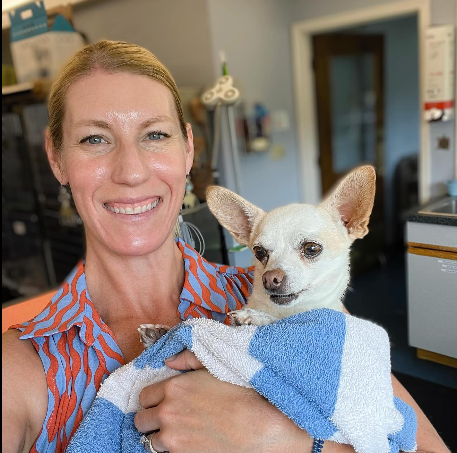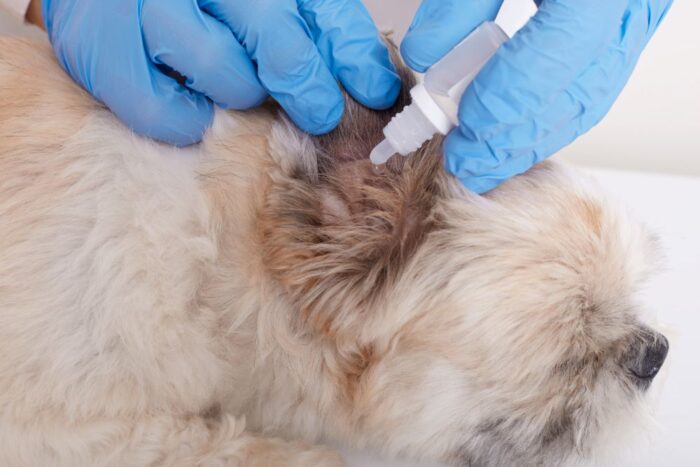Cocker Spaniels are known for their big, floppy ears. While adorable, these long ears can make Cocker Spaniels prone to developing ear infections. Ear infections are common in Cocker Spaniels, affecting around 1 in 5 dogs of this breed. As a responsible Cocker Spaniel owner, it’s important to understand the causes of ear infections, learn to spot the signs, and know how to properly care for infected ears at home. In this article we talk about Cocker Spaniel Ear Infections-Causes and Care.
Table of Contents
What Causes Ear Infections in Cocker Spaniels?
There are several reasons why Cocker Spaniels are vulnerable to ear infections:
Floppy Ears: Their long, floppy ears block air flow and ventilation. Moist, warm environments allow yeast and bacteria to thrive.
Excess Ear Hair: Cocker Spaniels tend to grow lots of hair inside their ears. This traps in moisture, dirt and debris which can lead to infection.
Allergies: Allergies are common in Cocker Spaniels. Allergic reactions cause inflammation and extra production of ear wax – perfect conditions for infection.
Ear Anatomy: Cocker Spaniels have a long, twisted ear canal that makes it hard to properly air out and dry the ear. Bacteria and yeast get trapped deeper inside.
Swimming: Swimming and bathing introduces extra moisture and organisms into the ears. The trapped water can serve as breeding grounds for bacteria.
Signs Your Cocker Spaniel Has an Ear Infection
The most common signs of an ear infection in Cocker Spaniels include:
- Head shaking or head tilting
- Ear scratching or rubbing
- Redness, swelling or discharge in or around the ear
- Odor coming from the ears
- Crusty buildup in the ears
- Hair loss around the ears
- Walking in circles or loss of balance
If you notice any of these symptoms, it’s important to see your veterinarian. Leaving an infection untreated allows it to worsen and spread. Serious ear infections left unchecked can result in permanent ear damage or deafness.
Caring for Infected Cocker Spaniel Ears at Home
To properly care for your Cocker Spaniel’s infected ears at home, follow these tips:
Clean the Ears: Gently wipe out debris and discharge from inside the ear canal using cotton balls soaked in an ear cleaning solution recommended by your vet. Never use Q-tips.
Apply Medicated Drops: Administer any prescription antibiotic, antifungal or steroid ear drops as directed by your veterinarian. Massage the drops into the ear canal.
Keep Ears Dry: After bathing, thoroughly dry your dog’s ears with cotton balls and a drying agent recommended by your vet. Allow air flow by not allowing hair to block the ear canal. Consider plucking ear hair.
Follow Up Appointments: Take your dog to all follow up vet exams to monitor how the infection is responding to treatment. Make sure to finish the full course of medication.
Preventing Ear Infections in Cocker Spaniels
While some dogs may just be prone to chronic ear issues, you can take these preventative measures to help reduce infections:
- Gently clean ears weekly
- Pluck excess ear hair regularly
- Keep ears dry after swimming
- Treat any underlying allergies
- Use preventative ear cleansers
- Avoid inserting foreign objects into ears
- Ensure good air flow to ears
Cocker Spaniels are at high risk for developing infected ears due to their breed traits. As an owner, routinely check your dog’s ears and learn the signs of infection. Seek prompt veterinary care for any symptoms. Follow all medical advice for treating current infections, and be diligent about prevention methods. With proper care, you can help your Cocker Spaniel lead a happy, healthy life despite their high ear infection risk. I sincerely hope you find this “Cocker Spaniel Ear Infections-Causes and Care” article helpful.

Dr. Allison Kramer is a seasoned veterinarian with a Master’s degree in Animal Behavior and over 10 years of experience specializing in canine health and behavior. Her expertise in positive reinforcement training and holistic care enhances the well-being of dogs and fosters strong pet-owner relationships. For expert advice and valuable insights, follow Dr. Kramer on Instagram @dr.allisonkramer.





